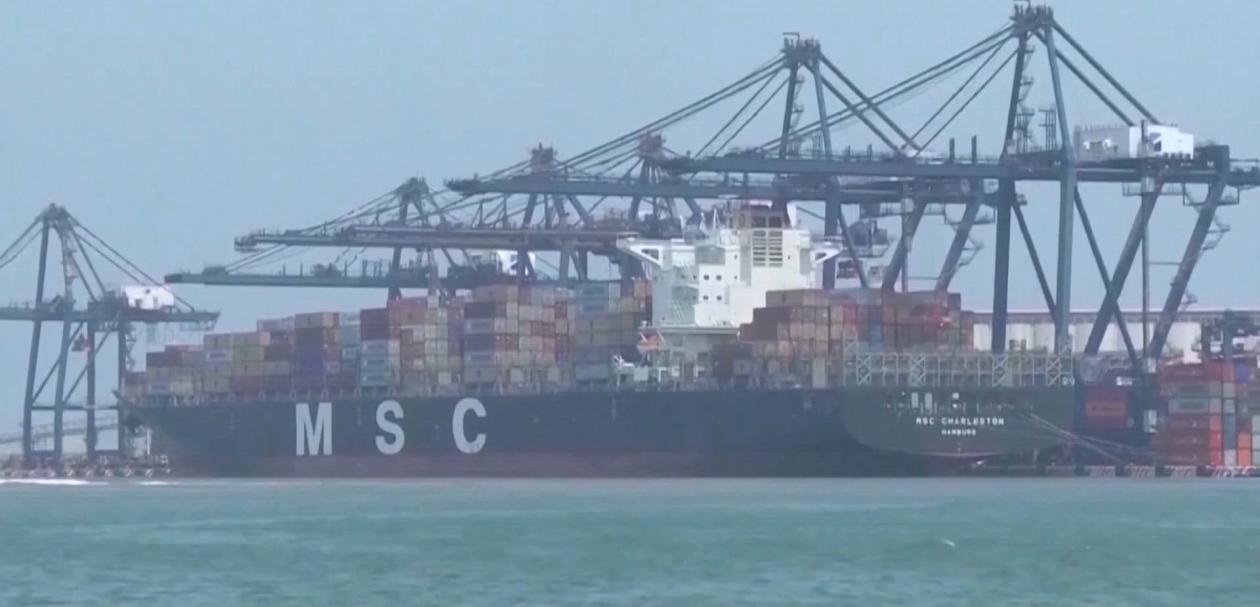
According to US media reports, due to the strong counterattacks by many countries around the world against the tariff policies implemented by the Trump administration of the United States, the US agricultural sector is under unprecedented pressure and suffering losses. A trade war triggered by tariff policies is pushing the US agricultural products industry into the abyss of a comprehensive crisis.
The Agricultural Transportation Union of the United States pointed out in a report released recently that its member companies are suffering "huge" financial losses. It is stated that the current predicament faced by the industry is no longer a "near-crisis", but a "comprehensive crisis" - a large number of orders have been cancelled, goods are unsalable, transportation is disrupted, and staff have been laid off. Almost every link has been affected.
An American company mainly engaged in the export of wood pulp and cardboard disclosed that currently 6,400 tons of goods in the warehouse have been forced to be stranded due to the cancellation of customer orders, and the enterprise has borne high storage costs for this. Furthermore, the 9,000 tons of goods originally planned to be exported to China in mid-May have also fallen into difficulties due to China's countermeasures against the imposition of tariffs on US goods. Relevant enterprises said that these goods might not be able to clear customs on schedule and could only be forced to remain in bonded warehouses or be re-exported to other markets, and the additional costs incurred from re-export were "incalculable".
Not only that, a forage exporter in central Washington State, the United States, also had to immediately halt all ongoing orders and lay off a quarter of its employees in an effort to weather the crisis due to customers cutting orders and a significant increase in transportation costs.
These situations reflect that in today's highly globalized world, unilateralism and trade protection policies have not truly benefited the domestic industries in the United States. Instead, they have brought about obvious "counterproductive effects".
The latest statistics provided by the freight data company show that as of April 14th, the volume of ship transportation between China and the United States has dropped sharply, with a week-on-week decline of more than 22% and a year-on-year plunge of 44%. The sharp decline in trade flow directly reflects the obstruction of export channels and also indirectly confirms the competitiveness and dependence of American products in the global market, especially in the Chinese market.
Faced with such a severe situation, the Agricultural Transportation Union of the United States and many industry institutions have called on the government to reevaluate the current foreign trade policy as soon as possible. The alliance clearly pointed out in the report that the continuous imposition of tariffs and trade barriers not only failed to enhance the international competitiveness of American enterprises, but also exacerbated the internal friction within the industry and the loss of market confidence. The chain reactions such as reduced exports, lost orders, business closures and rising unemployment rates are eroding the foundation of American agriculture.
Although the trade war is regarded as a tough negotiation tool in the short term, in the long run, it will have negative impacts on domestic industries, consumers and the global supply chain. Especially in the agricultural sector, the characteristics of long cycles, large investment and high dependence on the market make it more likely to become the most vulnerable "victim" in trade frictions.
In today's highly integrated global economy, trade frictions are unlikely to bring true victory to either party. The predicament of agriculture in the United States is not only a direct manifestation of the current policy imbalance, but also a realistic warning to the isolationist tendency. Resolving differences through constructive dialogue and multilateral cooperation mechanisms and returning to a fair and mutually beneficial trade track might be one of the few rational choices in the current situation.
At present, the tough stance of the US government in trade policy is encountering more and more doubts and opposition from the domestic industrial sector. If the strategy is not adjusted in time, it will not only further harm the development of domestic agriculture, but also may have a more profound negative impact on the global trade pattern.

Amidst the global wave of technological transformation, artificial intelligence (AI) has become a key focus of competition among major tech giants.
Amidst the global wave of technological transformation, art…
In January 2026, the remarks by US Treasury Secretary Besse…
Less than three weeks into 2026, transatlantic trade relati…
On January 17, 2026, the Trump administration, under the pr…
When Musk set the goal of achieving a launch frequency of m…
A week after the largest nationwide protests in years, the …